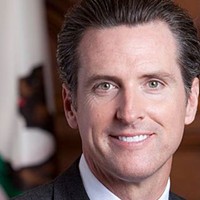[
{
"name": "Top Stories Video Pair",
"insertPoint": "7",
"component": "17087298",
"parentWrapperClass": "fdn-ads-inline-content-block",
"requiredCountToDisplay": "1"
}
]
A Google search of tribalism in America returns 664,000 results with headlines like "The New Tribalism and the Decline of the Nation State" and "Can Our Democracy Survive Tribalism?" Recently, a bounty of new books has arrived with titles like: Political Tribes: Group Instinct and the Fate of Nations and Us Against Them: How Tribalism Affects the Way We Think.
You've probably noticed the word appearing more and more often in media communications and personal conversations. In fact, University of California at Berkeley linguistics professor Geoff Nunberg made "tribalism" his choice for 2017 word of the year. "Tribalism" has become the current go-to word when trying to make sense of the increased groupishness in beliefs. This trend is demonstrated by our current scurry to ally with groups, signal our affiliation by forwarding news, gossip and anecdotes that arouse head nods, "likes" and, in some quarters, an occasional "amen."
Venues for our "affinity groups" (a more social-sciency term than tribe) can range from the traditional club or local tavern to contemporary meetups on Facebook, Twitter and in the suburbs of subreddits. A search for the words "tribalism" and "polarization" appearing together yields 52,200 hits, so it becomes important to explore the connection between these two current phenomena.
First, I'd like to add the disclaimer that I in no way mean the use of the word tribe to imply any disrespect for the common use of the word as distinguishing one group of indigenous peoples from another. The word has a long history coming from the Latin "tribus," denoting one of the three political/ethnic divisions of the original Roman state. Wikipedia clarifies the dual use of the word "tribe" by saying, "The word 'tribe' can be defined to mean an extended kin group or clan with a common ancestor, or can also be described as a group with shared interests, lifestyles and habits."
Tribalism is rooted in our evolutionary biology and evolutionary psychology, in tandem with our cultural coevolution and, by fostering cooperation in achieving common goals, is no doubt a principle driver of the success of Homo sapiens. But while tribalism nurtures in-group solidarity, it can also lead to competition and conflict between groups.
For example, our biological evolution has given us and other mammals receptors in various parts of the brain for the hormone oxytocin, best known for increasing maternal behavior. According to Robert Sapolsky, author of the recent book Behave-Biology of Humans at our Best and Worst, the molecule also "makes you more prosocial to people like you (i.e. your teammates) but spontaneously lousy to others who are a threat." And as some authors have pointed out, while tribalism may have served us well in our early history when our problem-solving related to simpler and more local issues, it can in these more complex times impede our progress in meeting the global challenges that now face us.
In his sketch-book video "The Dangers of Tribalism," philosopher and podcaster Kevin deLaplante, founder of the Critical Thinker Academy, defines polarization as "a measure of the magnitude of differences between groups." He goes on to say, "Now there's an obvious dark side to polarization. It's not hard to see how increasing polarization in our tribal psychology can lead to serious social and political problems and a distorted perception of the world."
According to deLaplante, as the gap in attitudes, beliefs and values between groups (tribes) widens, we begin to disagree on more things and disagree more strongly, and then begin thinking that this disagreement represents a deeper flaw in the moral character of members of the other group or represents a basic defect in their ability to see reality for what it really is. At this point, common ground begins to collapse and the motivation to separate (segregate) becomes strong. Concurrent with this distancing from the other group, is a strengthening of our in-group solidarity as a result of having identified a common enemy.
Expressing similar concerns in an NPR interview in April of last year, Georgia State University professor Jennifer McCoy warned that, as democracies become more tribal and more polarized, the various groups begin to no longer see each other as political adversaries coexisting in a healthy democracy but instead view the other as a "threatening enemy to be vanquished," resulting in a breakdown of negotiations and communication. McCoy has studied polarized democracies in countries like Venezuela, Turkey and Hungary, and worries about the growing distance between political parties and other groups in the U.S.
Philosopher, podcaster and master teacher deLaplante appeared as a guest on the June 6 edition of "Thinking Clearly" — a program about critical thinking and related topics, which airs live on KMUD radio the first Thursday of every month from 7 to 8 p.m.
The podcast version of the show can be downloaded at: thinkingclearly.libsyn.com or using iTunes and other podcast apps. Discussion of the topics of tribalism and polarization will be continued on the July edition of "Thinking Clearly," which is hosted by myself and Julia Minton. (Check out the show's Facebook page at https://www.facebook.com/ThinkingClearlyRadio/.)
Bob Froehlich's background is in the sciences and psychology. He is currently retired after 30 years of teaching chemistry and psychology as well as being a counselor — all at the community college level.
Speaking of...
Comments
Showing 1-1 of 1
Latest in Views
Readers also liked…
-
Hope
- Sep 7, 2023
-
California Says No to Privatizing Medicare
- Sep 21, 2023



































